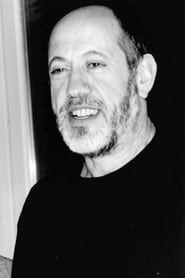
Michel Nedjar
Master of Art Brut, Michel Nedjar was born in 1947 in the Val d'Oise to a Jewish family marked by war and the holocaust. His father, born in Algiers, settled in Paris in 1921 as a tailor. At home, he tinkered on a sewing machine doll clothes for his sisters. During the Second World War, a large part of his family fell victim to Nazi oppression.
In 1960, he became aware of the magnitude of the Holocaust. At the age of fourteen, he enrolled in a vocational school to become a tailor and sells jeans with his flea grandfather from Saint-Ouen and accompanies his grandmother to the scrap fair; she makes him share his love for Shmattès (the worn cloth) that she picks up and stacks. In the spring of 1967, he left for military service. With tuberculosis and declared disabled in 1968, he spent a few months in a school of fashion stylist. He is upset by the vision of 'Night and Fog' by Alain Resnais, echoing his own disappearances in his family.
In the years 1970-1975, he left with Teo Hernandez. His travels take him to Morocco, Asia Minor, Europe and Mexico. He discovers cultures rich in symbolic expressions. He begins to take an interest in the funeral art and the dolls whose magic function fascinates him. Returning to Paris in 1976, he began making his first dolls called "Chairdâmes" with rags that he gleaned in the neighborhood of the Goutte d'Or, then made dolls dyed. In 1978, a period of depression transformed his style: his dolls look like gargoyles and terrifying totems, they are sometimes soiled with dirt and even blood. It was in 1980 that he began to draw with grease pencils on recovered flea media.
He made his first films in 8 mm from 1964 during his holidays in Greece or the Balearic Islands. Like Lionel Soukaz, he is one of the first French experimental filmmakers to address the theme of homosexuality (Le gant de l'autre, 1977). His practice will evolve towards a more formal exploration of the characteristics of cinema: luminous calligraphies (Gestuel, 1978), grain of the film (Le grain de la peau, 1986); either to direct cinema (Monsieur Loulou, 1980). These research finds their paroxysm in Capitale-paysage (1982-83), mixing snatches of conversations, work of concrete sound and rhythm, and kaleidoscopic effects.
| Known For | Directing |
|---|---|
| Most Rating | 2.589 |
| Birthday | 1947-10-12 |
| Place of Birth | Soisy-sous-Montmorency, Val d'Oise, France |
| Also Known As |
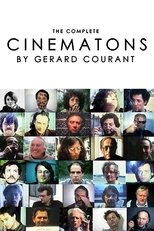
1978

Cinématon
4.3/6
Cinématon is a 156-hour long experimental film by French director Gérard Courant. It was the longest film ever released until 2011. Composed over 36 y...
Watch Now
Cinématon
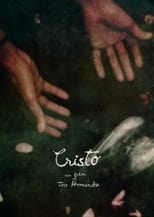
1977

Cristo
2.5/2
All of history, that of Christ or any other, permeates the world, leaves its mark, modifying and informing history, and all that the human reproduces...
Watch Now
Cristo

1978

Michel Nedjar
0/0
Splendid portrait of the artist Michel Nedjar making one of his dolls, which allows to fully follow the entire genesis of the act of creation.
Watch Now
Michel Nedjar

2016

Dolls of Darkness: The Art of Michel Nedjar
0/0
Dolls of Darkness is a feature length film that explores the mysteries and profundities of dolls, puppets and marionettes in the context of the grotes...
Watch Now
Dolls of Darkness: The Art of Michel Nedjar

1970

Michel Over There
1/1
The desert, the sea, someone. I meet Michel Nedjar; together we went to the south of Morocco. There, a movie begins to take shape and develops as our...
Watch Now
Michel Over There

1980

Lacrima Christi
5/2
Lacrima Christi is the longest of the over 150 films made by the Mexican filmmaker resident in Paris, Teo Hernández. Part three of a tetralogy devoted...
Watch Now
Lacrima Christi

1978

Cristaux
10/1
The tetralogy pieces are dominated by the concept and presence of death, foreclosure, fetal vertigo. As such, CRISTAUX is a real descent into an inner...
Watch Now
Cristaux

1980

Graal
3/2
The film Graal goes (as well as all the films which precede it) toward an open and avowed paganism, in which pagan force and magic imbue all the subje...
Watch Now
Graal
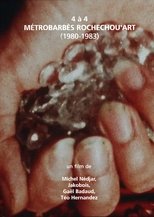
1983

4 à 4 Métro-Barbès-Rochechou-Art
6/1
In the early '80s, this collective of artists invented a style of cinema made in 4 hands, where each of the protagonists is also a filmmaker.
Watch Now
4 à 4 Métro-Barbès-Rochechou-Art

1977

Esmeralda
0/0
With Esmeralda, Hernandez shifts to the romantic mythology, but this descriptive aspect is secondary in the filmmaker's work, whose purpose is the con...
Watch Now
Esmeralda
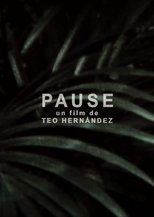
1970

Pause
0/0
An early Téo Hernandez film exploring the space of a garden.
Watch Now
Pause

1976

Salomé
4/3
A personal interpretation of Oscar Wilde Salome from three basic elements: the light, the color, and the projection speed.
Watch Now
Salomé

1983

Souvenirs/Rouen
0/0
Fugitive images of the northwestern city of France.
Watch Now
Souvenirs/Rouen
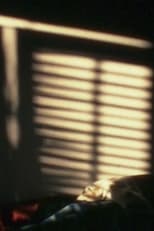
1987

Fragments
0/0
Eyes and ears travel discontinuously through everyday life and the sub-worlds of the city and the body. A fragmented and subjective day-to-day chronic...
Watch Now
Fragments

1979

Hors-jeu
0/0
As this title indicates, the rule of the game is random. The protagonist invites us to play rhythmic palpitations of radio parasites and broken images...
Watch Now
Hors-jeu

1984

Mesures de miel et de lait sauvage
0/0
Teo Hernandez films waste and scrap found on the pavements of the streets of Paris. “Sidewalks are great subjects: garbage, objects and materials, sta...
Watch Now
Mesures de miel et de lait sauvage
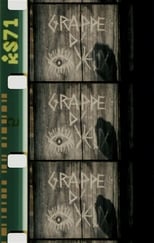
1983

Bouquet of Eyes
0/0
Through the use of portraits, shadow play and reflections, this series of exercises with and from body language compose a "four-handed" look against t...
Watch Now
Bouquet of Eyes

1981

Sara
0/0
Portrait of the filmmaker's mother during her visit to Paris.
Watch Now
Sara
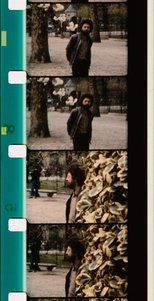
1981

Sur Graal de T.H.
4.8/5
Watch Now
Sur Graal de T.H.
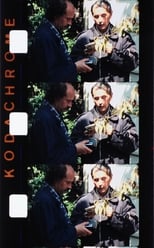
1989

Le chant de l'âme
0/0
Watch Now
Le chant de l'âme

1981

Chutes de Pascal
0/0
Outtakes from the movie
Watch Now
Chutes de Pascal

1984

Chutes de Michel Nedjar
0/0
Outtakes from the movie
Watch Now
Chutes de Michel Nedjar
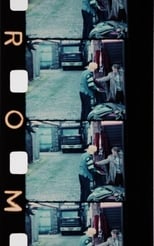
1978

J'aime
0/0
Watch Now
J'aime

1978

Cinématon III
0/0
Reel 3 of Gérard Courant's on-going Cinematon series.
Watch Now
Cinématon III

1978

Cinématon n°27 : Michel Nedjar
0/0
Watch Now
Cinématon n°27 : Michel Nedjar

1986

Robillard André, Nedjar Michel
0/0
Short film by Teo Hernández.
Watch Now
Robillard André, Nedjar Michel

1991

Madrid, Quelques Images
0/0
Experimental film by Teo Hernández.
Watch Now